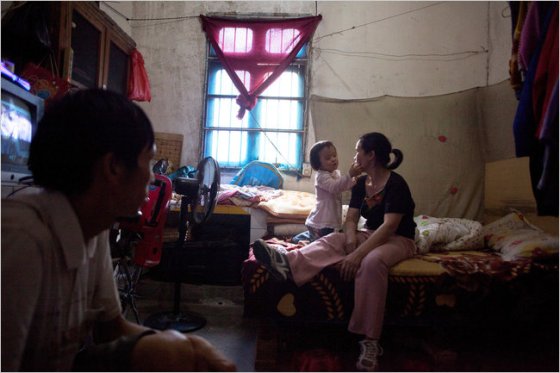
I never understood the media’s stereotypical images of African-American men. Perhaps it’s because I was raised by a man who worked hard to prove each and everyone of those negative images wrong. When my mother describes what made her choose my father, even though another man had planned on marrying her, she blushes like a school-girl. It was 1980 in South Korea, my father was a G.I. stationed in Seoul and my mother was raising her younger siblings. She was going to a class to learn English, when she met my father. She says, “He was cool, you know? A jazz man. He had a style nobody else had. He spoke and dressed well. And I never met anybody like him before. And he was so smart.” And he’s still all of this today.
Lesson #1 –
What you do in the dark, will come to the light.
My father used to tell me this all of the time. The first occasion was when i was about 4 or 5 years old and I had discovered that if I spit on the carpet, no one would know because when it dried, there was no mark left. So I spit. Don’t ask me why, I just did. Everyday I would spit on the carpet in the house. My father asked me once – “Did you spit on the floor”, and I told what I think was my first lie “No”. I believe he stood outside my door and waited for me to do it again and when he caught me, boy, I was sorry. But that’s when he told me, what you do in the dark will come to the light. A phrase that I hate hearing because he’d repeat it everytime i got in trouble.
Like when I got kicked out of my college dorm for having a huge smoke session. The R.A.’s AND Police came the morning after I fit a good fifteen people into my dormroom to smoke weed and hash and the scene would have made Snoop himself proud. Complete with left over rolling papers, roaches, lighters and empty baggies, a full description and photos were sent to my folks. And I was swiftly moved to a dorm, on campus. I wasn’t given much by way of lectures but the biggest and most fitting punishment was no pocket money for months. All my Dad told me was that i put him and my mother out of thousands of dollars because I did something I thought I wouldn’t get caught for. He repeated, don’ hide things – they will always be revealed one way or another.
Lesson # 2 –
There is no such thing as a “Goodest Student” and “there it go” is not proper English
Though my father was born and raised in one of the poorest communities in Miami-Dade County, he never embraced the stereotypical ghetto decorum. He always dressed conservatively. And he always, ALWAYS spoke properly. However, in my early life I was exposed to quite a number of people who didn’t follow suit and I began to say things like “I’m finna go to the sto’” or “I ain’t hungry“. One time when my father picked me up from kindergarten, and asked how it was going I told him “Ms. So-and-so love me. I’m her goodest student.” and he told me “Nikki, there’s no such thing as goodest. That’s not proper english. You should say I’m her best student. ” Needless to say, I felt like a dumbest student then and there. But I was always on my P’s and Q’s about speaking correctly afterward. I thank my father everyday for drilling this lesson into me. The way you speak says as much about you as any other trait you posses. If not more. My father never wanted to be seen as an ignorant person. He never wanted people to think he was uneducated. He was ever the distinguished gentleman.
Lesson # 3 –
“No matter how good you are at something, there’s always someone out there better than you.”
Humility. Plain and simple. That’s what this lesson was about. I was always cocky as a child. I was cute and people always wanted to hold and hug me and play with my hair. And when I started getting awards in school for things like most books read, or longest hula-hoop session, I gloated.After one particularly successful field day, on the drive home my father explained to me that there would be someone out there who could be me at the things I was good at. He didn’t mean it and I didn’t take it as, “you’re not the best kid” but rather “be prepared to lose someday, we don’t always win first place at everything.” He was teaching me how to not be a sore winner. This is a lesson I’m still trying to wrap my head around, though. Because as far as I can tell, I’m still the best at the things I do. ^^

